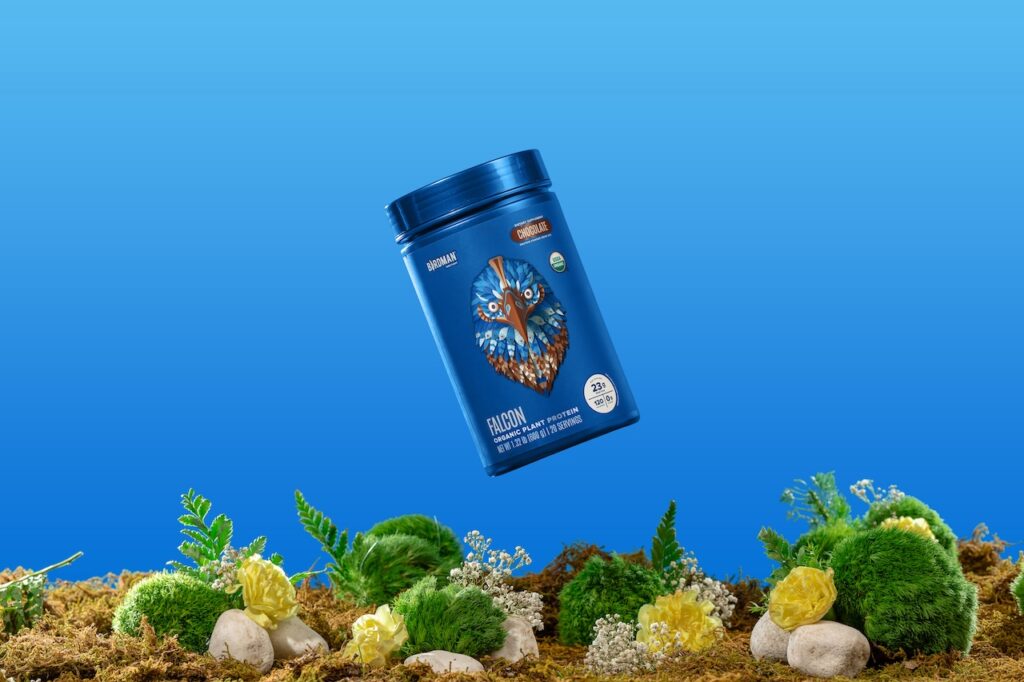
When Birdman, the Guadalajara-born vegan sports-nutrition company, decided to enter the US market last November, the team knew it was essentially starting over. What worked at home wouldn’t translate automatically to American shelves. In a candid conversation at Newtopia Now, Erick Montanez, Sales Director at Birdman, laid out the company’s playbook for the US: lean on brokers and local partners, make taste the primary conversion lever, move quickly in R&D and production, and obsess over sales velocity and ROI.
Starting from zero — with lessons from Mexico
Birdman has built a “very strong business” across Mexico over roughly nine years, growing rapidly year after year. That success gave the company the confidence to expand into the US, but launching in a new market meant relearning many things and recalibrating expectations: “We’ve been in the market around nine years and grew really fast at home, consistently growing triple-digit year over year. Coming to the US last November felt different: we just feel like entrepreneurs again.”
This humility is practical: rather than assuming the same tactics would work, Birdman sought local expertise to avoid typical cross-border mistakes.
Distribution: brokers, marketplaces and a staged rollout
To navigate the fragmented US retail landscape, Birdman leaned on brokers, distribution partners and third-party logistics providers. Erick described these intermediaries as essential, not just for logistics but for buyer introductions and trade-show visibility.
Today, Birdman has a presence on Amazon and through specialty chains and independents via broker relationships. Erick also confirmed pipeline movement with retailers such as Sprouts and Fresh Thyme and noted a closed deal for HEB, while admitting that mass-market, big-box placements remain a work in progress.
“We always go to a new country and we see it with Mexican lenses…a lot of mistakes. Local partners helped us pivot appropriately.”
The near-term commercial target is pragmatic and measurable: Erick mentioned a goal of landing “eight core accounts” alongside broader independent-channel penetration and growth on marketplace channels.
Product positioning: “clean, simple, delicious”
Birdman’s positioning centers on simplicity and taste. Erick repeatedly returned to flavor as the key barrier for consumers switching from whey to plant-based proteins. To address that, Birdman emphasizes short ingredient lists (Erick noted “only six different ingredients”) and uses monk fruit as a sweetener.
Sampling and trial are core to the company’s strategy, not an afterthought. Erick laid out a plan for “massive sampling” to ensure consumers can taste and recognize Birdman’s products as superior on flavor.
“Taste is huge. The main barrier for people switching from whey to plant protein is flavour. We will develop massive sampling so that the people can really recognize Birdman as the most delicious plant-based protein in the market.”
This “taste-first” posture underpins Birdman’s marketing and channel plays: win trial in smaller outlets and online, then scale distribution once velocity is proven.
R&D and production: speed as a competitive edge
A recurring theme in the interview was Birdman’s agility. The company runs its own production and maintains an in-house R&D lab. Erick credited the CEO’s technical involvement and a young, nimble team with enabling near-instant iteration: “from one day to another we can develop a new product.”
That capability has strategic payoff: products like creatine-forward formulations performed well in Mexico and are earmarked for a more aggressive push in the US market. In short, Birdman’s playbook is to prototype fast, get consumer feedback, and pivot quickly based on what the data shows.

Commercial discipline: sales velocity and frugality
If R&D speed is one edge, operational discipline is another. Erick described sales velocity as the company’s daily north star, the metric that opens and closes doors with retailers.
“Sales velocity is a factor that can bring you to a new retailer or kick you out of our retailer.”
That intensity runs through their go-to-market budgeting decisions. Birdman’s approach to events and trade shows is deliberately ROI-focused; the company avoids vanity spending and prioritizes activities that demonstrably drive trial or sales.
“We are not going to have the biggest booth in the trade show…if that is not profitable.”
This combination of relentless focus on velocity and a frugal mindset is how a fast-growing regional brand aims to translate traction into sustainable, capital-efficient expansion.
What’s next: US expansion and beyond
Looking forward, Erick outlined a sensible, phased roadmap: grow presence in the US via targeted accounts and marketplace channels, refine pack sizes and pricing to accelerate trial, then expand into adjacent markets including Canada, the UK, and Europe.
If Birdman can convert its Mexican playbook to the American context, leveraging brokers to open doors, tasting to win consumers, R&D speed to adapt products, and strict ROI discipline to retain retail partners, the company believes it can build meaningful US momentum. Erick’s final assessment was candid and pragmatic: success is plausible, but it will require the same agility and frugality that facilitated the brand’s earlier wins.
This article was provided by vegconomist guest author Nils Knoop. With nearly two decades of experience in marketing and brand-building, Nils Knoop has worked with global brands like Nike, Ben & Jerry’s, and Seventh Generation, specializing in impact storytelling and sustainability-driven campaigns. As co-founder of Apollonia and an advisor for HEYHO, he brings deep expertise in ethical branding and social impact.



































































